Forget Hou Hsiao-hsien (侯孝賢) and Tsai Ming-liang (蔡明亮), there are many new names in Taiwanese cinema worth noticing, few of whom are known internationally. The Taipei Factory (台北工廠) project is seeking to remedy this situation.
The Taipei Film Commission (台北市電影委員會) initiated the project in 2012 to facilitate collaborations among young talented filmmaking from home and abroad, as well as to help Taiwanese directors gain international exposure. Its debut effort, Taipei Factory I, is a joint enterprise between the commission and the organizers of Directors’ Fortnight section at Cannes Film Festival, where the work had its world premiere. The feature-length film is composed of four stand-alone shorts, each pairing a Taiwanese director with a filmmaker from another country.
ITALIAN CONNECTION
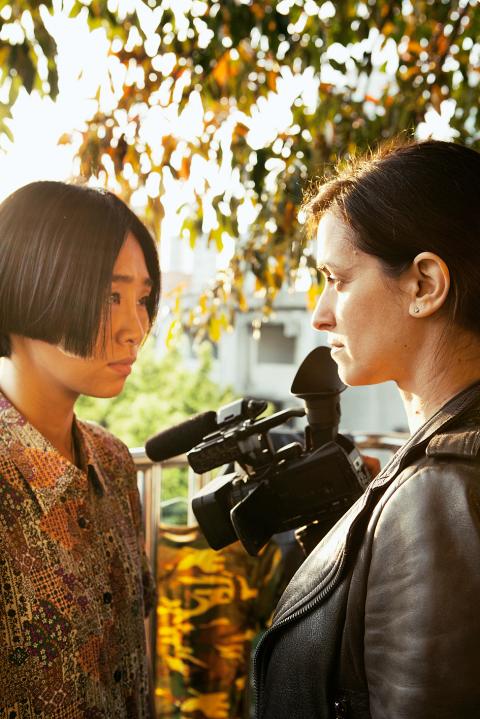
Photo Courtesy of Taipei Film Commission
Taipei Factory II, the second installment completed last year and co-produced by the government commission and Italy’s Rai Cinema, comprises three 30-minute, Taipei-based shorts by a Taiwanese director and Italian actors. The film was premiered in the Out of Competition section of Venice Film Festival last year.
Singing Chen (陳芯宜), Shen Ko-shang (沈可尚), Midi Z (趙德胤) and Hou Chi-jan (侯季然) are among the highly talented filmmakers who took part in the second installment. While the goal to unite Taiwanese directors with filmmakers from around the world is inspiring, the results are uneven, with some films seeming more an experiment than finished work.
CREATIVE PLATFORM
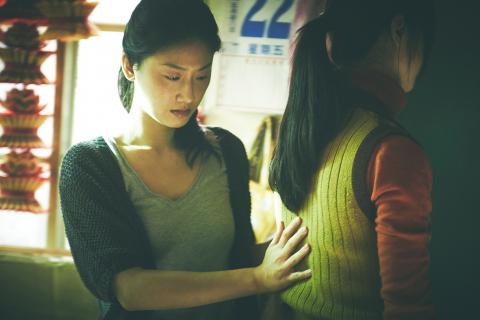
Photo Courtesy of Taipei Film Commission
The project is probably best seen as a creative platform through which new talents from different cultures and countries meet, get inspired and create together.
Silent Asylum (沈默庇護), a pseudo-documentary co-directed by Taiwanese-Burmese filmmaker Midi Z and France’s Joana Preiss, and screened as part of Taipei Factory I, tilts toward the artsy. Weaving together the characters’ harrowing accounts of the violent oppression in Burma with Preiss reciting poetry about Hiroshima, the work has an air of gravitas, but is limited to a somewhat messy, intellectual exercise rather than conveying emotional poignancy.
A Nice Travel (美好的旅程) by Taiwan’s Shen and Chilean director Cifuentes is composed of impressionistic fragments of the life of a woman (Chu Chih-ying, 朱芷瑩), and the work is visually appealing but narratively too sporadic to form a meaningful portrait.
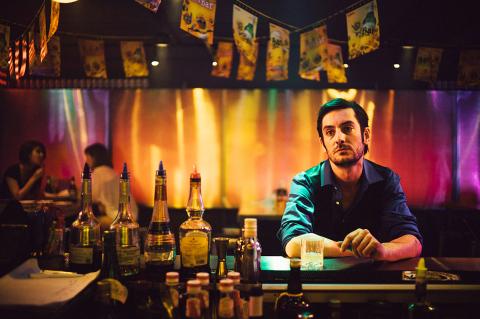
Photo Courtesy of Taipei Film Commission
Mr. Chang’s New Address (老張的新地址), a collaboration between Chang Jung-chi (張榮吉) and Alireza Khatami from Iran is the final chapter of the quartet and also the finest.
Filled with dark humor, the film follows a poker-faced man, magnificently played by Jack Kao (高捷), who is thrust into an existential crisis when he returns home to find that his house has all but disappeared, except for a wooden door. It is admirable how the directors tell a cleverly written allegorical story within a 15-minute time frame, that reflects upon the plight of humanity and, at the same time, is kept lively in a comic, surreal tone.
Covering different genres from thrillers to romantic comedies, Taipei Factory II brings more attention to dramatic narratives than the serious content of its predecessor. Hsieh Chun-yi’s (謝駿毅) Luca (盧卡), for example, is a well-executed character drama centering on an Italian businessman, played by Italy’s Marco Foschi, who travels to Taiwan to make funeral arrangement for his wife, who was killed in a car accident while riding a motorbike with her Taiwanese paramour.

Photo Courtesy of Taipei Film Commission
Fun and titillating, Hou Chi-jan’s The Thrill (顫慄) injects a healthy dose of homo-eroticism into the vampire genre, telling of a middle-aged taxi driver (Yu An-shun, 游安順) discovering how love/lust is highly contagious after being bitten by a handsome vampire, played by Italian actor Michele Cesari.
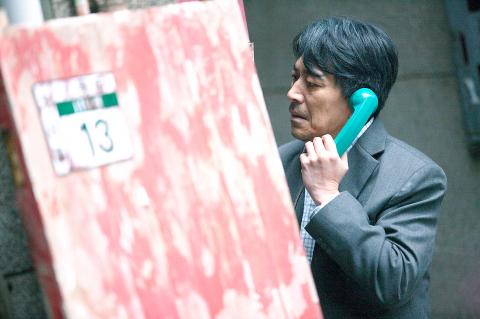
Photo Courtesy of Taipei Film Commission
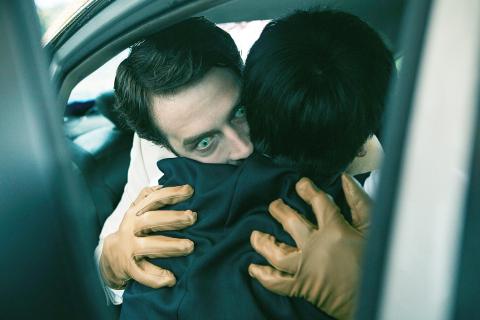
Photo Courtesy of Taipei Film Commission

The canonical shot of an East Asian city is a night skyline studded with towering apartment and office buildings, bright with neon and plastic signage, a landscape of energy and modernity. Another classic image is the same city seen from above, in which identical apartment towers march across the city, spilling out over nearby geography, like stylized soldiers colonizing new territory in a board game. Densely populated dynamic conurbations of money, technological innovation and convenience, it is hard to see the cities of East Asia as what they truly are: necropolises. Why is this? The East Asian development model, with

June 16 to June 22 The following flyer appeared on the streets of Hsinchu on June 12, 1895: “Taipei has already fallen to the Japanese barbarians, who have brought great misery to our land and people. We heard that the Japanese occupiers will tax our gardens, our houses, our bodies, and even our chickens, dogs, cows and pigs. They wear their hair wild, carve their teeth, tattoo their foreheads, wear strange clothes and speak a strange language. How can we be ruled by such people?” Posted by civilian militia leader Wu Tang-hsing (吳湯興), it was a call to arms to retake

This is a deeply unsettling period in Taiwan. Uncertainties are everywhere while everyone waits for a small army of other shoes to drop on nearly every front. During challenging times, interesting political changes can happen, yet all three major political parties are beset with scandals, strife and self-inflicted wounds. As the ruling party, the Democratic Progressive Party (DPP) is held accountable for not only the challenges to the party, but also the nation. Taiwan is geopolitically and economically under threat. Domestically, the administration is under siege by the opposition-controlled legislature and growing discontent with what opponents characterize as arrogant, autocratic

When Lisa, 20, laces into her ultra-high heels for her shift at a strip club in Ukraine’s Kharkiv, she knows that aside from dancing, she will have to comfort traumatized soldiers. Since Russia’s 2022 invasion, exhausted troops are the main clientele of the Flash Dancers club in the center of the northeastern city, just 20 kilometers from Russian forces. For some customers, it provides an “escape” from the war, said Valerya Zavatska — a 25-year-old law graduate who runs the club with her mother, an ex-dancer. But many are not there just for the show. They “want to talk about what hurts,” she